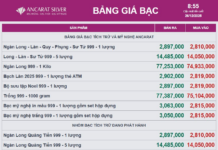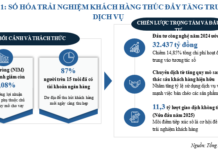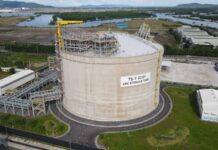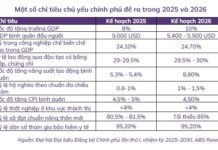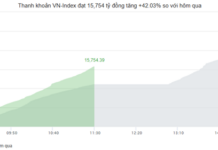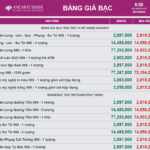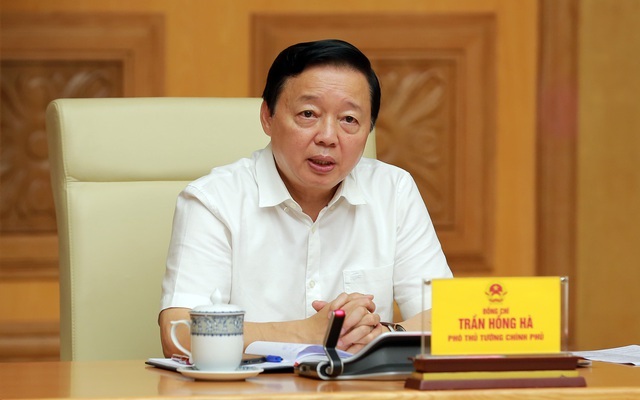
Deputy Prime Minister Tran Hong Ha
|
The Deputy Prime Minister emphasized the importance of drafting decrees to guide the implementation of the Land Law, Housing Law, and Real Estate Business Law, stating that they are crucial for citizens, businesses, and state management at both central and local levels. He suggested organizing in-person and online meetings across the nation to gather direct feedback from ministries, sectors, local authorities, experts, and business associations. This comprehensive approach will ensure a rigorous process and prevent potential obstacles and challenges when the decrees are enforced.
He requested delegates to focus their discussions on new and breakthrough regulations that may have differing opinions during the drafting process.
Reselling social housing after 10 years of rental requires land use fee payment
According to the Ministry of Construction’s report, the draft decree consists of 7 chapters and 78 articles, providing detailed guidance on 18 contents in the 2023 Housing Law related to social housing policies. The decree inherits effective existing regulations while institutionalizing new and breakthrough policies to address difficulties and bottlenecks in implementing social housing support policies in the past.
The delegates agreed with the regulation that the land use fee should be calculated at the time when the project’s investor resells social housing after 10 years of rental. They also concurred that individuals who purchase social housing apartments after 5 years of rental are exempt from paying land use fees. However, regarding the regulation that requires the payment of land use fees for the resale of social housing in the form of separate houses (built in communes of ethnic minority and mountainous areas), the Deputy Prime Minister instructed to consider, calculate, and specify regulations to ensure the benefits of ethnic minority people and those in difficult areas.
For contents related to the development of social housing by investors of commercial housing projects, the delegates proposed allowing investors to choose to allocate a portion of the area, arrange alternative land funds, or contribute money equivalent to the value of the land invested in constructing technical infrastructure for social housing development, with a minimum ratio of 20%.
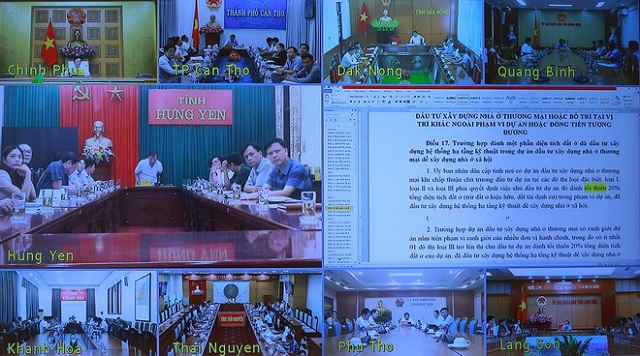
Delegates discussing the obligations and responsibilities of commercial housing project investors in social housing development – Photo: VGP/Minh Khoi
|
Mr. Duong Duc Tuan, Vice Chairman of the Hanoi People’s Committee, suggested clearly stating that the money contributed by investors of commercial housing projects to the state budget, equivalent to the value of the land invested in constructing technical infrastructure for social housing, should be used solely for social housing development.
Mr. Phan Phong Phu, Vice Chairman of the People’s Committee of Quang Binh province, proposed encouraging investors of commercial housing projects in urban development projects to allocate funds to build social housing on the allocated land instead of contributing money to the budget.
Regarding the provisions on the stages of investment projects for social housing and housing for the armed forces, Deputy Prime Minister Tran Hong Ha suggested not having separate regulations to ensure equality among beneficiaries of social housing support. He also emphasized the need to promote decentralization for local authorities, the Ministry of National Defense, the Ministry of Public Security, and others.
Simplifying procedures for constructing, renting, and purchasing social housing
On other matters, the delegates proposed that the drafting agency should supplement and clarify preferential credit policies, minimum land area and land use ratio for separate social housing, and additional responsibilities for state management agencies in verifying the obligations of commercial housing project investors in constructing social housing. They also suggested reconsidering the regulation on allocating land in industrial parks for worker accommodations.
Concluding on some important contents, the Deputy Prime Minister requested the Ministry of Construction to coordinate with the Ministry of Finance, the State Bank, and other relevant agencies to research a mechanism to mobilize and utilize resources for social housing development in a unified and focused manner. He emphasized that state budget resources should play a leading role, along with contributions from commercial housing project investors and other social sources, without burdening commercial banks participating in preferential credit packages for social housing.
The decree should also include long-term policies on planning and allocating land for urban and rural development, allocating state budget, and combining it with other sources for social housing projects.
The Deputy Prime Minister assigned the Ministry of Construction to coordinate with ministries and sectors to review and streamline the procedures for social housing projects, simplify the criteria for identifying beneficiaries, and the conditions and procedures for renting and purchasing social housing. He also emphasized encouraging private enterprises to invest in social housing projects, forming a mechanism for post-inspection of social housing projects, and supplementing the regulation on converting land funds or resettlement housing projects into social housing.

